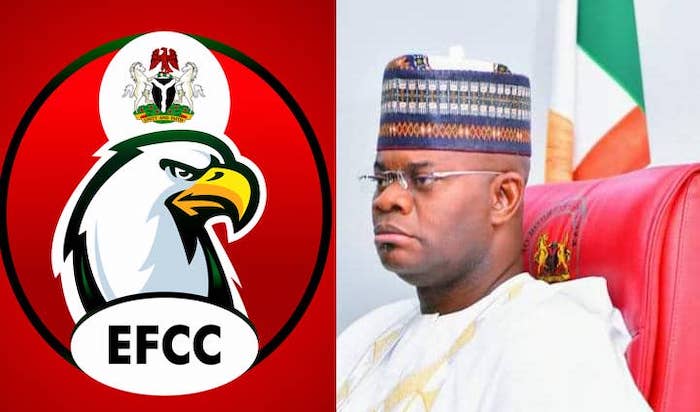[BREAKING] Yahaya Bello vs EFCC: Court Adjourns To June 26 For Ruling On Cross-Examination Dispute

The Federal High Court in Abuja has adjourned the trial of former Kogi State Governor, Yahaya Bello, to June 26, 27 and July 4, 5, following a legal dispute between the prosecution and defence over the Economic and Financial Crimes Commission (EFCC)’s request to cross-examine its own witness, Nicholas Ojehomon.
The presiding judge, Justice Emeka Nwite, took the decision after hearing arguments from both sides on whether the EFCC could cross-examine its witness on Exhibit 19, a document tendered by the defence. The prosecution, represented by Olukayode Enitan, SAN, claimed the cross-examination was necessary for fair hearing, citing Section 36 of the Constitution. However, Joseph Daudu, SAN, counsel to the defendant, objected, arguing that under the Evidence Act, a party cannot cross-examine its own witness unless the witness is first declared hostile.
“You cannot cross-examine your own witness without declaring him hostile. That is the position of the law,” Daudu insisted, maintaining that the EFCC’s request was “a strange and unknown procedure not covered by the Evidence Act.”
Although the judge initially denied the EFCC’s request to cross-examine, he offered the prosecution the opportunity to re-examine the witness within the limits of procedure. When the re-examination began resembling cross-examination, Daudu again objected, prompting the court to call for formal addresses on the matter.
Justice Nwite ultimately ruled that the matter required further arguments before any decision could be taken and adjourned the trial.
At the last hearing, witness Nicholas Ojehomon, an internal auditor at the American International School, Abuja, stated under cross-examination that no funds from the Kogi State Government or any of its local governments were wired to the school’s account. He also read from a prior court ruling confirming no judgment exists that labels the funds in question as proceeds of money laundering or orders their return to the EFCC.
The case, which centres on allegations of money laundering against Yahaya Bello, continues to draw national attention as legal arguments deepen over proper trial procedures and evidentiary standards.
